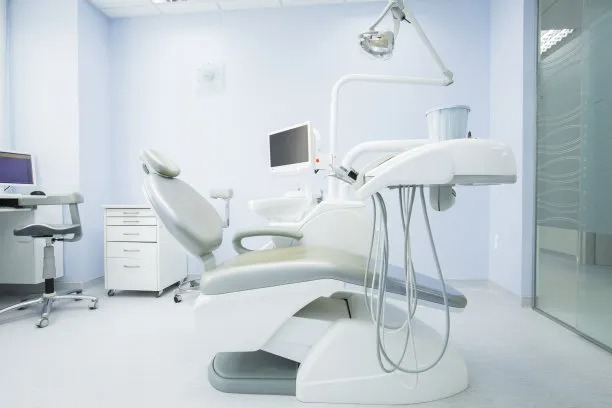Summary: Periodontal disease, often regarded merely as a dental issue, has profound implications for overall health. This article explores the multifaceted impact of periodontal disease on systemic conditions such as cardiovascular diseases, diabetes, and respiratory issues. By understanding these connections, we can better appreciate the necessity of preventive measures and early intervention strategies. The article outlines effective methods for maintaining oral health, emphasizing the importance of regular dental check-ups and personal hygiene practices. Ultimately, enhancing awareness of periodontal disease can significantly contribute to overall health and wellness.
1. Connection Between Periodontal Disease and Systemic Health

The relationship between periodontal disease and overall health has become a significant topic of research in the medical community. Studies indicate that the bacteria responsible for gum disease can enter the bloodstream and contribute to inflammation, potentially leading to serious health issues. Chronic inflammation is known to exacerbate conditions like heart disease, where inflammation of blood vessels can result in coronary artery disease.
Furthermore, diabetes management may be adversely affected by periodontal disease. The bidirectional relationship implies that while diabetes can increase the likelihood of developing gum disease, the presence of periodontal disease can, in turn, make diabetes harder to control. Regular dental care is crucial in maintaining stable blood sugar levels and, consequently, a lower risk of complications.
Additionally, research suggests that periodontal disease is linked to respiratory health. Bacteria from the mouth can be inhaled into the lungs, leading to infections such as pneumonia, especially in vulnerable populations like the elderly. This connection signals the importance of good oral hygiene as a preventive measure for respiratory diseases.
2. Importance of Oral Hygiene in Prevention
Maintaining proper oral hygiene is one of the most effective strategies to prevent periodontal disease. Brushing teeth at least twice a day with fluoride toothpaste helps remove plaque — a sticky bacteria-laden substance that contributes to gum disease. It is also important to use dental floss daily to clean between the teeth where a toothbrush might not reach.
Mouthwashes containing antibacterial properties can provide an added layer of protection against gum disease. These products can reduce plaque accumulation and help keep gums healthy, making them an excellent complement to regular brushing and flossing routines.
Moreover, dietary choices play an integral role in oral health. A balanced diet rich in vitamins and minerals, particularly vitamin C and calcium, can enhance gum health. Foods high in added sugars should be limited, as they can increase dental plaque formation and worsen periodontal conditions.
3. Role of Regular Dental Check-ups in Early Intervention
Regular dental visits are critical for the early detection and intervention of periodontal disease. Dentists can identify the early signs of gum issues before they develop into more serious conditions. During these check-ups, professional cleaning can remove hardened plaque and tartar, which are difficult to eliminate through home care alone.
These visits also provide an opportunity for health professionals to educate patients about proper oral hygiene practices and the overall impact of oral health on systemic conditions. When patients understand the risks associated with poor oral health, they are often more motivated to adhere to preventive practices.
Early detection is key; gum disease is often asymptomatic in its initial stages. Thats why the American Dental Association recommends at least two dental visits per year, tailored to individual risk factors, to maintain optimal oral and overall health.
4. Community Awareness and Education Programs
Raising community awareness about the impacts of periodontal disease is vital in promoting overall health. Educational programs can inform the public about the links between gingival diseases and systemic health issues, encouraging individuals to prioritize and yet not neglect their oral health. This can be achieved through workshops, seminars, or preventive health events.
Moreover, partnerships with local health organizations can facilitate outreach programs that focus on at-risk populations. Educational materials tailored to cultural contexts can significantly enhance understanding and adherence to preventive measures within diverse community settings.
Empowering individuals with knowledge about oral health can lead to better health outcomes. When communities are informed, they are more likely to engage in healthy behaviors and seek regular dental care, ultimately reducing the prevalence of periodontal disease and its related complications.
Summary:
Understanding the impact of periodontal disease on overall health is crucial for appropriate preventive measures and early interventions. The connection between oral health and systemic conditions underscores the need for comprehensive dental care, established hygiene practices, and community awareness. Improving public knowledge of periodontal risks can significantly enhance health outcomes.
This article is compiled by Vickong Dental and the content is for reference only.
Vickong Dental
Vickong Dental is a large medical group established in Hong Kong in 2008 by professors from well-known medical universities in Guangdong and Hong Kong, as well as medical doctors from key national '985' universities (including Master's supervisors and senior professors). The chain of branches brings together expert dentists with PhDs and Master's degrees from Hong Kong and Mainland China, committed to providing high-quality dental treatment.
"Vickong Dental Practices the University Motto of 'Healing and Serving Society,' with a Stable Operation for Sixteen Years. It Has Been honored with Hong Kong Enterprise Leaders's Choice,' and is a Global Trusted Implant Center for the Nobel Implant System. Recommended by Hong Kong Metro Broadcast and Guangdong Television, it Serves Customers from Over Thirty Countries and Regions, Gaining the Trust and Favor of Citizens from the Guangdong-Hong Kong-Macau Greater Bay Area and Surrounding Cities.

Thousands of customers' unanimous praise
The most recognized and highly recommended dental service by customers in the Guangdong-Hong Kong-Macau Greater Bay Area
We Ensure You Receive Detailed Care and Attention Here
Hong Kong standards, Shenzhen prices, Your Trusted English-speaking dentists

Vickong Dental Medical-Grade Instrument Disinfection Process
Vickong Dental Medical-Grade Instrument Disinfection Process

Vickong Dental Chain: A Warm and Comfortable Environment for Treatment






Appointment Hours

Q&A
Why choose Vickong Dental?
Vickong Dental practices the university motto 「Medicine to Benefit Society」, with each branch bringing together highly qualified dentists with doctoral and master’s degrees from Hong Kong and the Mainland, and has maintained seventeen years of steady operation。Recipient of 「2024 Hong Kong Enterprise Leaders Brand」, 「2025 Hong Kong Enterprise Leaders Brand」, a Nobel Biocare Global Trusted Implant Center, and a brand recommended by Metro Radio Hong Kong and Guangdong TV。
To date, we have served customers from more than thirty countries and regions,earning exceptionally high word-of-mouth recognition and trusted recommendations from residents across the Guangdong-Hong Kong-Macao Greater Bay Area and surrounding cities
We have eight major branches in Zhuhai、Shenzhen,and a consultation and service assurance center in Hong Kong,so you can book a free consultation at any time for any questions,which is very reassuring.
If I do not accept the quotation after the CT scan, will I be charged??
No! As long as the actual treatment has not started, you will not be charged any fees.
Will there be any additional charges during the treatment process?
No, there won’t be any additional charges. Before treatment begins, we will clearly explain the treatment plan and its corresponding fees. Only after the patient agrees and signs the consent form will we proceed with the dental service.
Can I pay in Hong Kong dollars?
Yes. Vickong Dental accepts payment in Hong Kong dollars. The amount will be converted based on the exchange rate of the day, and the applicable rate will be clearly communicated to you in advance.
Can I reschedule my appointment at any time?
Yes. Please contact us via **WeChat** or **WhatsApp** as early as possible, providing your original appointment time and details, along with your preferred new date and time slot for rescheduling.













